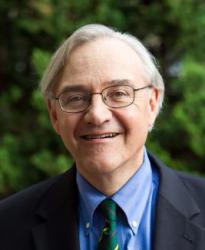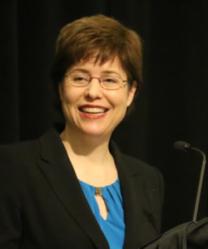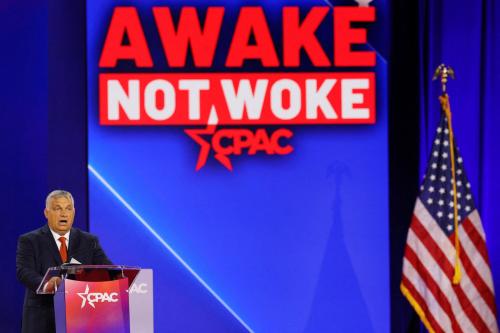Introduction
One of President-elect Barack Obama’s distinctive contributions to the nation’s political debate is his call for a more productive, inclusive and open discussion of issues at the intersection of faith and public life. Even before he announced his presidential candidacy, Obama noted that Americans were “tired of seeing faith used as a tool of attack” and weary of “hearing folks deliver more screed than sermon.” At the same time, he criticized those “who dismiss religion in the public square as inherently irrational or intolerant.” He urged respect for believers and nonbelievers alike.
One sign of Obama’s intention to put actions behind his words was his endorsement of government partnerships with faith-based and community institutions that do the work of charity and justice, combined with a call to reform President Bush’s approach to these issues.
We offer this paper to suggest that despite the controversies over the Bush program, there is much common ground here. We can and should have a better discussion about these issues — even, and perhaps especially, where we disagree. We lay heavy stress on the history of cooperation between religious institutions and government to suggest that such partnerships are not an innovation of the Bush administration.
President-elect Obama was clear on his starting point, an “all hands on deck” approach to our nation’s problems and particularly to the problems of our neediest citizens. Government, he declared, should partner with “grassroots groups, both faith-based and secular” because the challenges we face “are simply too big for government to solve alone.” The key questions facing the next administration are: How will those partnerships function and how will the president-elect push for his agenda in this area to be institutionalized?
The next president’s answers to these questions should be rooted in sound public policy and in respect for the Constitution’s guarantees of religious freedom. This paper presents some options for the next president to consider.
We believe strongly that President-elect Obama should not view the moment as merely presenting him with the obligation to pass judgment on a signature item of the Bush presidency. He should regard it as an opportunity to rethink an approach that long predates the Bush administration and will far outlast his own presidency. It is our view that the discussion of this question has too often been divorced from history, and in the process has become excessively partisan and ideological. Because these partnerships are now identified with President Bush, we understand that some will view the next president’s efforts in this area with deep skepticism. But we believe that President-elect Obama — himself a former community organizer supported by churches — has an opportunity to remind the nation of the long history of these partnerships and to encourage a richer and more thoughtful understanding of their possibilities.
Where President Bush’s initiative is concerned, we praise certain aspects of his program, but are critical of many of his approaches. We believe that by pushing against certain church-state boundaries, the administration reduced the opportunity for finding common ground and raised genuinely serious constitutional issues. We also believe that if partnerships with faith-based institutions are to succeed, there must be more accountability, more transparency in how grants are administered, and a concerted effort to make sure that government funding goes to programs that work and are constitutionally sound. We thus urge extensive efforts to evaluate programs that receive government funding, and also favor a systematic study of the general practice of contracting out public services. We advocate a pragmatic view on the question of which services are best provided directly by government, and which by religious and secular intermediaries. At the same time, the work of community groups, faith-based and secular, should also be seen as part of a larger effort to promote bottom-up problem-solving that engages citizens in the work of self-government.
We also worry that placing a major public emphasis on the work of religious charities was, for some, a way of diverting attention from cuts in core government programs for the poor or, worse, a way of justifying them. We see the work of religious charities — including those that receive government aid and those that do not — as essential to compassion and justice. But they are not sufficient. Religious groups, for example, cannot guarantee that all low-income children receive health insurance coverage. In the end, this is a task that only government can do. We would hope that the next administration will see partnerships with faith and community groups as part of a larger effort to lift up the poor, and that this will be a more central purpose of government than it has been in the recent past. Action is required, not merely soothing words. As our friend John DiIulio nicely quipped in a play on the words of the New Testament letter of James: “Faith-based without works is dead.”
But if it is impossible not to admire and respect the contributions of our religious communities, it is also important to bear in mind that government’s task is to promote good works, not religion itself. Spreading the faith is the task of believers, not government. Government cannot and should not favor one religion over another. It should not favor religious over secular providers, and neither should it favor nonreligious over faith-based organizations.
Another danger for both government and religion is when grants of money become forms of patronage for political allies. If a new administration simply replaces a previous administration’s religious friends with its own, this effort will founder. That is one reason we suggest more transparency in the grant process and annual hearings to assess progress and problems in this area.
Saying that the government should welcome partnerships with religious social service providers is not the same as saying that religious providers should enter into these arrangements. There are risks for religious groups in working with the government. In financial partnerships especially, these risks include concerns about becoming dependent on government and co-opted by it. Religious organizations should carefully consider these issues as they entertain the notion of seeking government funds. If much of this report focuses on government partnerships with religious organizations, this emphasis should not in any way be seen as diminishing the importance of secular organizations involved in what President Bush’s program referred to as “community initiatives” or what President-elect Obama has called “neighborhood partnerships.” On the contrary, we believe that the “community” and “neighborhood” aspects of these programs have too often been lost in the controversies surrounding church-state questions. A well-organized and well-directed program should be designed to strengthen and encourage the work of the entire voluntary and not-for-profit sector — and to unite rather than divide it. If we speak far more about matters related to religion, it is because these aspects of the program have been the most controversial and raise issues that must be resolved if the broader effort is to move forward. We hope the new administration will do more, not less, to highlight the work of all neighborhood- and community-based groups, secular as well as religious — and, as is so often the case, the extraordinary partnerships that have been built across these two categories.
We began this project before the election, and our commitment was to offer these suggestions to either a President-elect Obama or a President-elect McCain. After the election, we rewrote parts of the paper to include President-elect Obama’s statements on the subject. We have not tailored our own views to fit his — and there are many questions on which he has not yet expressed a position. He has acknowledged candidly that there are some questions on which he has not worked out his views. But it’s also true that, as a general matter, many of his public statements square with our own leanings.
At the outset, we think it important to call attention to the fact that there are many forms of cooperation between government and faith-based groups that involve no transfer of government funds to religious entities and raise far fewer constitutional issues.
Both of us find it strange that a discussion focused around the word “faith” so frequently devolves into an argument about money. Yet religious groups and congregations have often done their best work in promoting shared objectives without receiving any grants from government. Church groups have been at the center of efforts to engage parents with teachers and to promote reforms of public education. Religious leaders have served as vouching agents with banks and other institutions outside poor communities in community development efforts. Churches have responded to the need to provide mentors for the children of the incarcerated. Religious groups reached out to poor citizens unaware of their eligibility for government benefits. These and so many of the most important contributions of our religious communities can be lost in the political crossfire when the entire debate over faith-based partnerships devolves into an argument over how to distribute government assistance.
We offer these proposals in the interest of finding common ground. We have consulted widely with people who have different perspectives on these issues. We have spoken with and interviewed people who are broadly sympathetic to our own view, and also with many who might disagree with some of our conclusions. Those we consulted included former members of the administrations of Presidents George W. Bush and William J. Clinton; religious social service providers; social science scholars and researchers; religious and civil rights leaders; constitutional scholars; state officials; and activists who supported President Bush’s faith-based initiative, those who opposed it, and those who fell somewhere in between. We thank all of them for their good counsel. As we indicate, some of the ideas presented in this paper are ideas they shared with us. We alone, however, are responsible for the conclusions of this report.
A word about our approach here: this report makes a number of specific proposals, but it is also aimed at providing background on the issues at stake. We offer what we hope is a fair if necessarily brief discussion of both the history of government partnerships with faith-based organizations and the legal background of certain controversies raised by these partnerships. There may be a bit more discussion of the law here than some of our policy-oriented colleagues might like. But because legal questions play such a significant role in this discussion, we felt some detail in this area was necessary. To reduce the burden on those for whom the law is of secondary interest, we have included an online appendix that discusses these matters in more detail (at https://www.brookings.edu/papers/2008/12_religion_dionne.aspx). A list of sources for this report also appears at that Web site.
This project has encouraged both of us to seek common ground together. We have broadly similar views on most of the issues at stake, but also a few differences. While both of us believe that government should welcome partnerships with religious as well as nonreligious organizations to serve those in need, Rogers sees more constitutional risks. Dionne is somewhat more willing to support a modest loosening of separationist strictures to encourage the work of faith-based groups. Nonetheless, we found agreement on most questions, and we have tried hard on difficult issues to recognize the various sides of the debate and to take their arguments into account.
One view we share strongly is that the discussion of these partnerships would be more promising if each side in the battle would concede at least some good will to the other, and if partisans of each tried harder to understand the core concerns of their opponents. Some who support government partnerships with faith-based groups need to be more attentive to the legitimate concerns of those who believe there are risks for both religious liberty and religion in these arrangements. Some who are concerned with church-state separation and religious liberty should be more mindful of the long and fruitful history of government partnerships with faith-based groups in the pursuit of justice and compassion.
We think President-elect Obama himself offered a useful perspective during the campaign that might encourage conflicting parties to seek agreement. “I’m not saying that faith-based groups are an alternative to government or secular nonprofits. And I’m not saying that they’re somehow better at lifting people up. What I’m saying is that we all have to work together — Christian and Jew, Hindu and Muslim, believer and non-believer alike — to meet the challenges of the 21st century.”
A shared understanding of the close ties that both religious and secular grassroots groups have to their communities would encourage us to see them as indispensable partners in local and national efforts to solve social problems. This, in turn, might begin to move this discussion away from ideological cul-de-sacs and toward — if we may be permitted to use the phrase — common sense.
We do not pretend that good will on all sides will instantly resolve the principled conflicts over partnerships with faith-based organizations that have arisen over the last decade or so. We do believe that good will and honest bargaining could ease many of the conflicts that have gotten in the way of a broader consensus, and could narrow and clarify the real differences.
One of our proposals is aimed directly at encouraging such give-and-take: we suggest that the White House establish a commission or task force with broad representation to propose new legislation to Congress governing partnerships with religious and other providers. Presidential commissions are often a dodge intended as an alternative to action, but in this case we believe history is on the side of the search for consensus. Witness the success of such efforts under President Clinton in finding broad agreement on the right of religious expression in public schools and in the federal workplace. This consensus process should be followed by hearings and debate on Capitol Hill.
The next administration can and should make some changes to executive orders and regulations early in its term. But we think everyone would benefit if government partnerships with religious and other social service providers were regulated through a relatively stable, long-term regime. Shifts in government’s attitude toward these partnerships from administration to administration help neither the providers nor those who need their assistance. Ultimately, we believe this commission approach, followed by the legislative process, is the best strategy for resolving the complicated issues at stake in this area.
We see this paper as the beginning of this process. We do not pretend here to address or resolve all the questions involved in this discussion, but we do take on many of the difficult issues and suggest solutions. The challenge, as we see it, is to find constitutional ways for government to foster the good work done by religious and other community-based organizations — and to do this without so dividing Americans across religious and political lines that the work itself is jeopardized. This will not be easy. But good things often aren’t, and we believe that in this area especially the effort to find common ground will genuinely advance the common good.
Download Executive Summary »
Download Fact Sheet »
Download Sources List »
Download Appendix »
The Brookings Institution is committed to quality, independence, and impact.
We are supported by a diverse array of funders. In line with our values and policies, each Brookings publication represents the sole views of its author(s).




